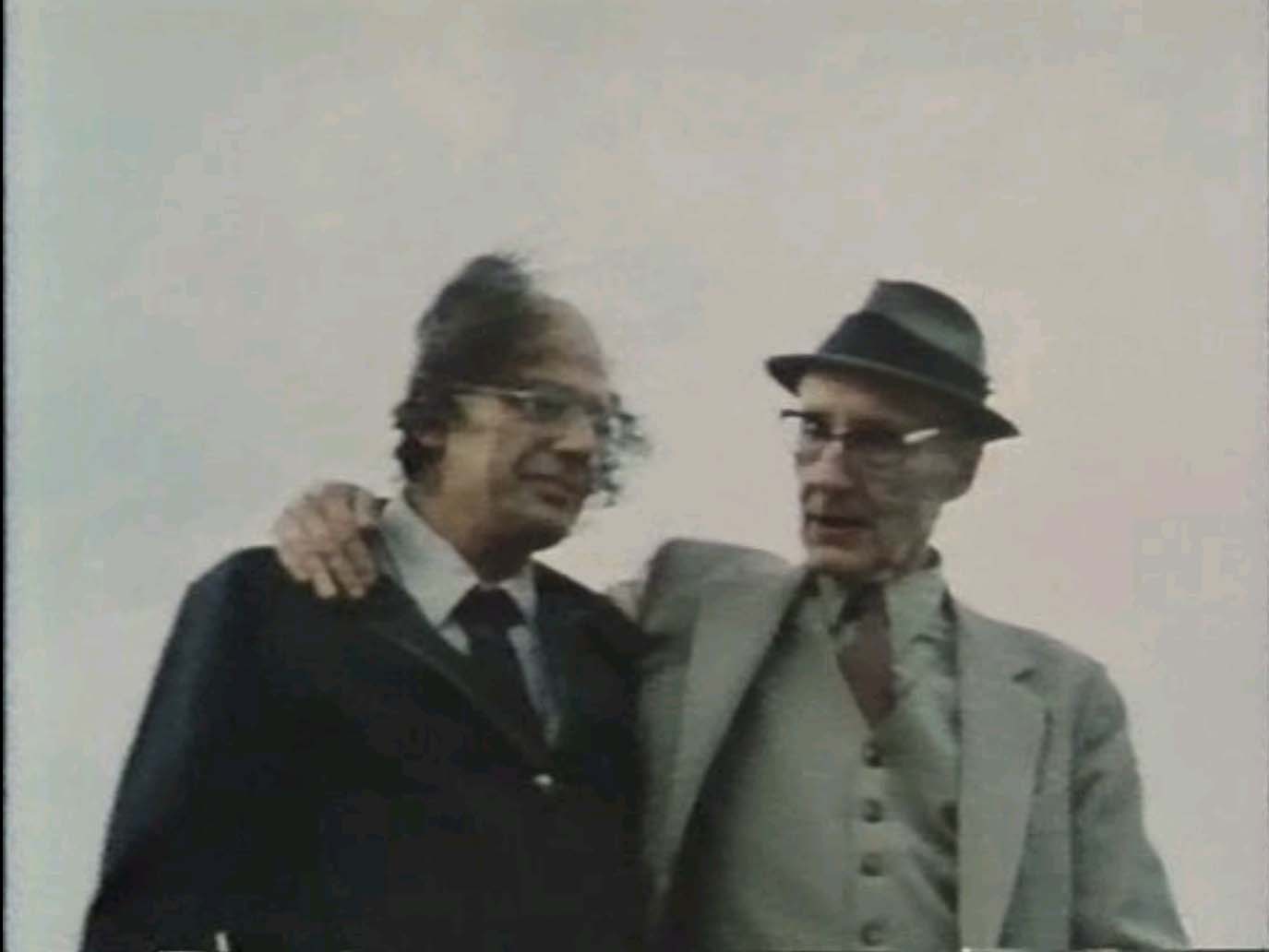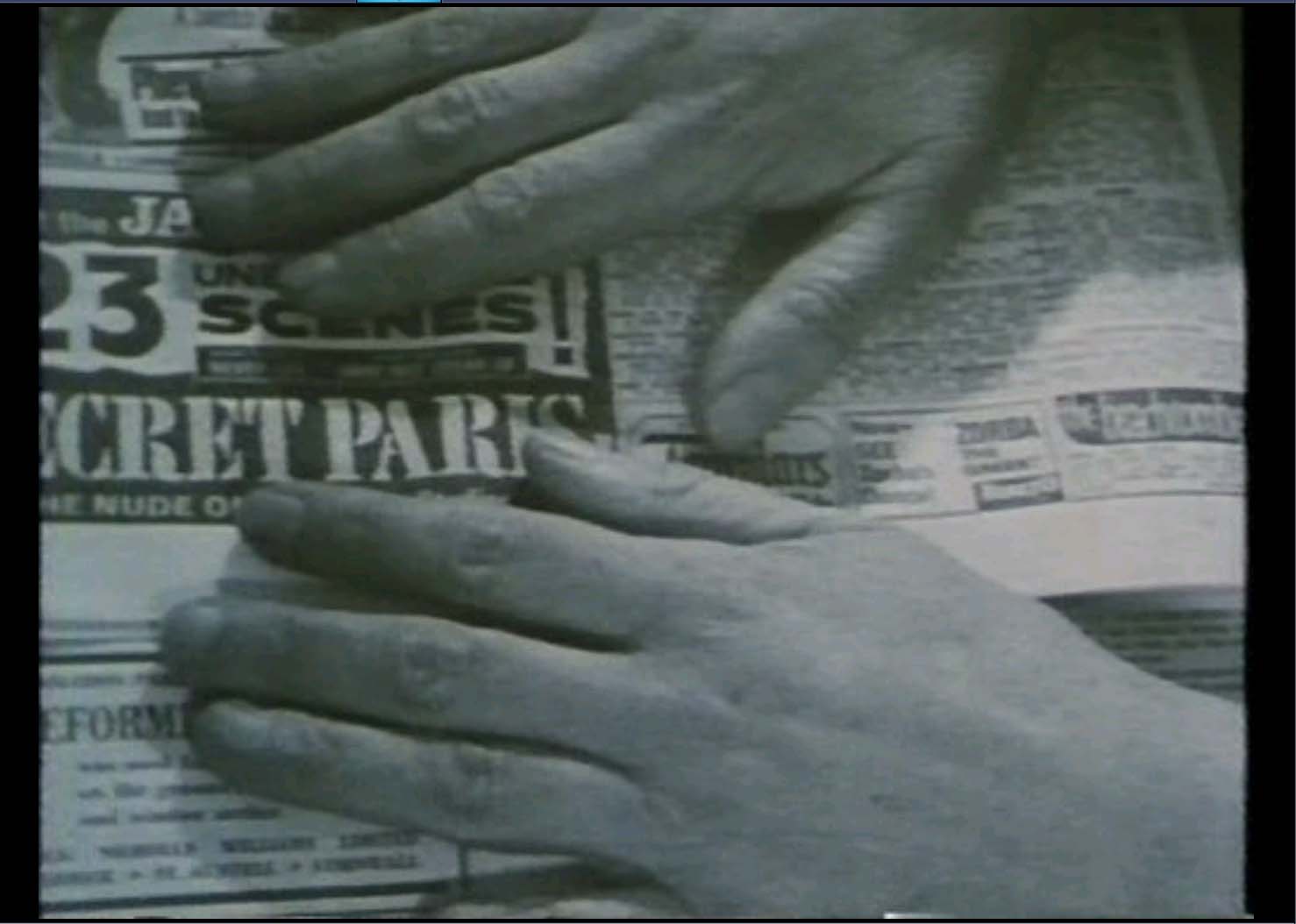|
Genres, Themes, Actors, and Directors:
- Biopics
- Documentaries
- Writers
Review:
Made when its titular subject was 69 years old, and appearing to be on the brink of death — though the tenacious coot lived another 14 years — this bio-doc offers a gritty, first-hand glimpse into the past and personality of one of America’s strangest novelists. Through extensive interviews with Burroughs himself, as well as other key figures in his life — including his good friend (and erstwhile lover) Allen Ginsberg, his sycophantic personal assistant, and his aloof, dismissive brother — one gradually discovers the seemingly limitless number of personal demons Burroughs fought against all his life (including the accidental shooting of his wife, a heroin addiction, and the premature death of his drug-addicted son). While Burroughs remains indispensable as a cultural document, however, it’s not particularly innovative cinema, and thus isn’t must-see viewing for film fanatics.
Redeeming Qualities and Moments:
- An intriguing overview of Burroughs’ tragic life

- Fun banter between lifelong friends Burroughs and Allen Ginsberg

- Burroughs describing his technique of “cut-ups”

Must See?
No; while interesting, this one is only must-see for Burroughs fans.
Links:
|
2 thoughts on “Burroughs (1983)”
First viewing. A once-must – not only for being a well-made documentary but as an example of how a doc can possibly alter preconceptions.
Initially – based on reading the assessment above – I had no desire in seeing this. Not only did the description make the film sound dismal but I had next to no interest in Burroughs or his work (aside from the fact that I feel Cronenberg did an amazing job adapting ‘Naked Lunch’ – a book I was never able to get through – for the screen).
On reading that one of those interviewed was Terry Southern, my interest piqued somewhat (I’d never seen Southern on-camera and was curious).
Much to my surprise, I found this doc fascinating throughout – mainly because there’s nothing slapdash about it; it was filmed over a 5-year period. (After being made and shown, the film fell into obscurity until the director’s nephew found a print in 2011 and organized a restoration.) On top of the time spent filming, it’s clear the work was done with a lot of care – and clear affection for its subject. There is a sharp economy in the creative editing – and, in the last third of the doc, a noticeable momentum builds.
Did the film change my opinion of Burroughs’ work? Well, it didn’t leave me with a desire to explore it more than I have – but it did alter my perception of the man himself somewhat, in the sense that I gained more insight into his thought processes as well as how he fit into his period of life.
I did not get the sense that the young man who became his personal assistant (James Grauerholz) was a sycophant – that image does not come out of what he says and/or how he is presented in the film. In fact, according to Wikipedia, if it wasn’t exactly ‘the other way around’, Grauerholz first met Burroughs when the author he so admired was destitute (and turning down lucrative teaching posts):
“His savior was the newly arrived, twenty-one-year-old bookseller and Beat Generation devotee James Grauerholz, who worked for Burroughs part-time as a secretary as well as in a bookstore. It was Grauerholz who floated the idea of reading tours, something similar to rock-and-roll touring, or stand-up comedian dates in clubs across the country. Grauerholz had managed several rock bands in Kansas and took the lead in booking for Burroughs reading tours that would help support him throughout the next two decades. It raised his public profile, eventually aiding in his obtaining new publishing contracts.”
In a very brief space of time, director Howard Brookner succeeds not only in shedding necessary light on Burroughs but in offering a well-rounded overview of the artistic circle in which he moved. Even if someone is not a Burroughs fan, it’s quite interesting to observe how Brookner makes his case for the man.
I may give this one another try, especially as it seems the film was restored after I viewed it (in 2007).